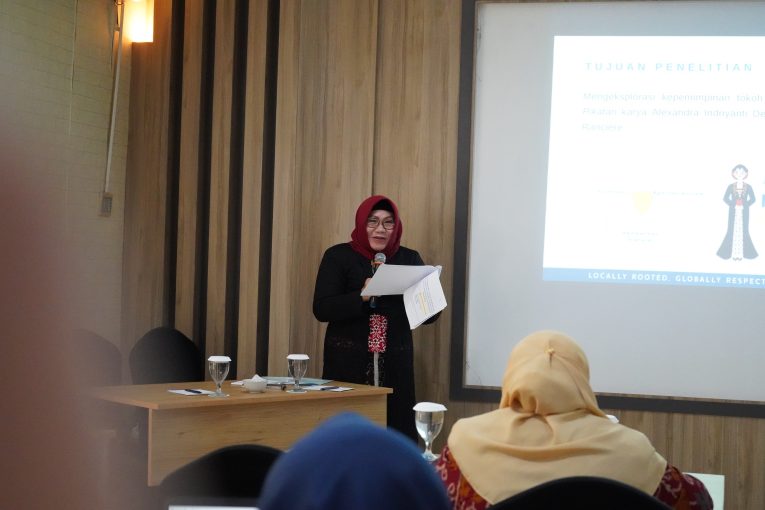
Yogyakarta, 2/7/2025 – The 4th International Seminar on Malay-Javanese Studies (SEMEJA) was held at the University Club of Universitas Gadjah Mada, presenting an inspiring discourse on the power of women’s narratives in Javanese literature. Dra. Wiwien Widyawati Rahayu, M.A., together with two of her students, Yudha Adistira and Saktia Hidayah, presented a study entitled “Leadership of Female Characters in the Novel Kidung Trěsna Sang Pikatan: Rancière’s Democratic Perspective.”
In her presentation, the researcher highlighted how female characters in the novel by Alexandra Indriyanti Dewi serve as agents of social change. Utilizing the radical democracy theory of Jacques Rancière, they interpreted that leadership in the story does not stem from structural power but from political actions that challenge the established patriarchal symbolic order.
Wulan, Pramodawardhani, and Sri Kahulunan emerged as representations of female figures manifesting Rancière’s three main concepts: dissensus, egalitarianism, and the reversal of hierarchy. Wulan, depicted as tělik sandhi, experiences inner conflict and subtly challenges the system through apparent compliance, a form of dissensus that quietly disrupts the power structure. Meanwhile, Pramodawardhani reflects the spirit of egalitarianism through her sharp political strategies and involvement in the development of Borobudur Temple. On the other hand, Sri Kahulunan firmly opposes the claim that leadership must be male-dominated, showcasing women’s courage in repositioning power.
Interestingly, all three characters were also analyzed through the lens of Donna Haraway’s cyborg feminism, positioning them as hybrid subjects that reject old dichotomies such as male-female or public-private. With this approach, female figures emerge not merely as complements to historical narratives but as leaders who reshape the power map.

This presentation contributes significantly to the discourse on gender and politics within the realm of literature, affirming that Javanese literature can also serve as a democratic space that validates women’s voices as active subjects of social change. More than just a historical romance, Kidung Trěsna Sang Pikatan stands as a text of resistance against patriarchy and a symbol of Javanese women’s bravery in carving their nation’s history.
The seminar also emphasized the importance of cultural diversity in literature, showcasing how different narratives can coexist and enrich the understanding of gender roles. By empowering girls through education for sustainability, the event highlighted the need for equal opportunities in literary representation, ensuring that women’s stories are told and celebrated.
In conclusion, through the presentation session by Dra. Wiwien Widyawati Rahayu, M.A., SEMEJA IV not only celebrated the contributions of experts and academics in Malay-Javanese studies, but also reinforced the importance of education and cultural diversity in building a more inclusive and sustainable future. The narrative presented is a call to action for everyone to recognize and support the vital role of women in literature and society.
[Public Relations of FIB UGM, Candra Solihin]

